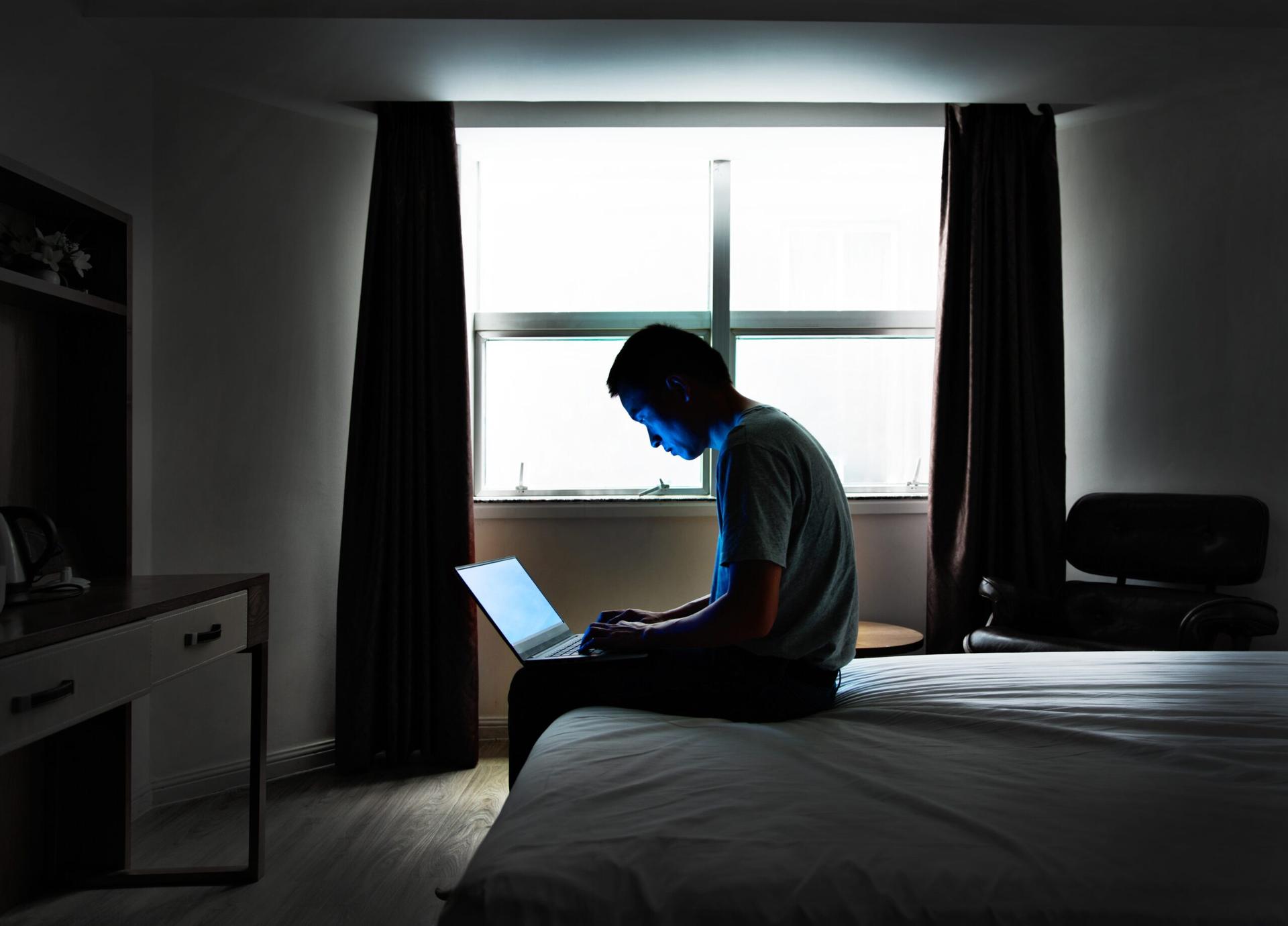Think about your five closest male relationships — it could be your dad, brother, son, friend or colleague. There’s a strong chance at least one of them was, or is, struggling with anxiety.
That’s because just over one in five Australian males have had anxiety in their lives (one in eight have had anxiety in the past 12 months). In fact, anxiety disorders are the most common form of mental illness in Australians, affecting 3.3 million people annually. Anxiety is the eighth-greatest cause of years lived with disability for Australian men, and costs our economy tens of billions of dollars annually.
And despite its greater prevalence, less is known about the effects of anxiety on men than is known about depression.
Anxiety is a big deal. Let’s dive into what exactly it is, its symptoms, treatment options and how to help yourself and others.
What is anxiety?
According to the Australian Psychological Society, anxiety is a natural and usually short-lived reaction to a stressful situation, associated with feelings of worry, nervousness or apprehension.
It typically occurs in new, unfamiliar or challenging situations, where the person might not feel up to the task, or where the outcome is uncertain — the first day of school, sitting an exam, speaking in front of an audience, or attending a job interview are all situations in which most people feel some anxiety.
But for some people, these anxious thoughts, feelings, or physical symptoms are severe, upsetting, frequent, and interrupt daily life.
Types of anxiety
Signs and symptoms of anxiety
No two people are ever the same when it comes to anxiety but Better Health Victoria states: “Symptoms of anxiety can include ongoing feelings of worry, fear and impending doom that are so severe they interfere with your ability to work, maintain relationships and get a decent night’s sleep.”
Do men and boys experience anxiety in different ways to women?
“Males can often tend to present differently when experiencing many internalising disorders like anxiety and depression,” Mark Deady, a Senior Research Fellow at the Black Dog Institute, says.
“When it comes to anxiety, men are much more likely to present describing the physical signs and symptoms like headaches or sleep disturbance. In general, this is probably largely a product of the cultural influences that exist, and the high stigma that still exists, when it comes to men expressing what might be considered weakness, fear or vulnerability. And it’s a real problem and a real barrier to help.”
“In many cases, men and boys use other often destructive means to cope with these feelings like violence or substance abuse and even suicide.”
– Mark Deady, a Senior Research Fellow at the Black Dog Institute
What to do if you think you need help
Like depression, anxiety is a mental health condition (not a weakness) and, with the right treatment, can be overcome.
Proven anxiety treatments include medication and therapy — your GP can be a good place to start the conversation about your mental health.
“We all experience anxiety on a spectrum (which is also true for the symptoms of depression or the experience of stress),”
– Mark Deady, a Senior Research Fellow at the Black Dog Institute
“It is a normal human response to pressure or feared stimuli. These feelings usually pass once the stressful situation has passed. Where they are persistent over time and are impacting an individual’s life, there becomes reason for concern.”
Deady says there are techniques to try if you’re struggling with anxiety.
“There are many things people can do to help manage feelings of anxiety,”. “There is good evidence for practices of mindfulness and meditation.
– Mark Deady, a Senior Research Fellow at the Black Dog Institute
“Practicing good self-care in general is very important — for instance exercise can be helpful in managing anxiety for some people, but getting adequate sleep, and moderation in terms of drugs and alcohol is also very important.
Many individuals experiencing anxiety can use substances like these to cope but the science actually shows that long-term this actually makes things worse.
“Various grounding strategies are also very helpful in moments of heightened anxiety and panic, while many other cognitive and behavioural skills are also considered gold standard in terms of anxiety management.
“When individuals are struggling, I would always recommend seeking help from your GP and other mental health experts.”
What to do if you think someone you know is struggling with anxiety
Deady says social support is vital for people trying to overcome anxiety, but don’t assume you’ll have all the answers.
“Social support is just so crucial — it can be helpful to provide someone with the opportunity to discuss how they’re feeling and be someone they can rely on and confide in.”
– Mark Deady, a Senior Research Fellow at the Black Dog Institute
“It’s normal to feel ill-equipped to help your mates and loved ones. But it’s important to know that just starting the conversation can go a long a way to helping someone out. Trust your gut when something doesn’t seem right.
“You won’t have all the answers and won’t necessarily be able to ‘fix’ someone else’s problems. This is okay.
In most cases this isn’t what people need — instead being able to feel heard and that someone is there for them is often enough. If all you do is validate, and link them with any sort of professional help, that’s massive.”
What if they deny there is a problem or don’t want to talk?
If you struggle to get through to the person you’re concerned about, Beyond Blue has some further advice:
“Accept that they might not be ready to talk. Tell them you’re someone they can talk to if they ever need to. Instead of talking about the issue, focus instead on staying in touch and doing things together that might make them feel less alone.
“If you’re still concerned over time, look for opportunities when they might be more receptive to the conversation. You could also suggest other people that they may prefer to talk to, such as a friend who has experienced anxiety or depression, or a confidential helpline.
“Remember, you don’t want them to feel pressured and it’s their personal choice to talk about it or not.”
What if they won’t see a professional?
Beyond Blue’s advice is: “Try to understand that it can take time for people to be ready to talk to a professional. You may not agree but respect their decision. Reassure them that they are not alone and plant the seed that professional support is available when they are ready.
“Discuss with the person what the barriers are for them, and whether there is any way you can help, such as taking them to the appointment, or finding a health professional they click with. Keep in touch.
“Don’t make your support conditional on them seeing a health professional.”
What if they are thinking of suicide?
If you’re concerned that someone may harm or even kill themselves due to their mental health issues, Beyond Blue states: “If you are unsure whether someone is thinking about suicide, the best way to find out is to ask.”
Learn how to talk to someone you’re worried about or visit the Conversations Matter website to find more resources for discussing suicide.
“If the situation is urgent and they are in immediate danger, do not leave them alone (unless you are concerned for your own safety).
“Call the person’s doctor, a mental health crisis service, or emergency services (dial 000). For further advice and support, contact the Beyond Blue Support Service (1300 22 4636), Lifeline (13 11 14) or the Suicide Call Back Service (1300 659 467).”













